Dear neighbors,
Over the last several weeks, my office has received requests to help spread the word about the distribution of free food in our community for the many that are struggling to make ends meet due to the economic impacts of the COVID-19 pandemic. Today’s newsletter is dedicated to providing information about programs in and near our district that are providing free food to families and individuals.
I hope this message finds you and your loved ones healthy and safe in these difficult times, and I urge everyone to mask up and continue to practice social distancing since we’ve seen another surge in COVID-19 infections in recent weeks. Remember, “my mask protects you, and your mask protects me.” Each of us must do our part to keep our community safe.
Summer Meals for K-12 Students
Seattle Public Schools 
Meals at School Sites
Seattle Public Schools (SPS) has sack breakfasts and lunches available at school sites Monday through Friday from 11 a.m. to 1 p.m. Find a list and map of sites here.
Reheatable prepared meals provided by FareStart are available for families to pick up at these school sites, as well.
Weekend student meal support is provided by the Backpack Brigade and Food for Schools. Families in need can pick up these non-perishable food items on Fridays.
Additional information:
- ADA accessibility support is available at school sites.
- Meals must not be eaten at the school due to social distancing requirements.
- All students can pick up meals at these sites, and parents or guardians may pick up meals for students. The student does not need to be present.
- Adults delivering to non-family members in the community and requiring more than 10 meals should:
- have agency identification, OR
- be SPS staff, OR
- have evidence that SPS can vouch for them.
Meals by Bus
Seattle Public Schools provides student meals by bus Monday through Friday throughout Seattle. Please refer to the online bus route maps and schedules, which can be found here.
If you have questions about the SPS summer meals program, please call 206-252-0900 or visit the SPS Student Meals website.
Renton School District
Renton School District will serve grab & go breakfast and lunch meals on Mondays and Wednesdays from 11 a.m. to noon at locations listed here. Monday’s service will have meals for Monday and Tuesday, Wednesday’s service will provide meals for Wed-Fri. The summer program will run through August 21.
Please pre-order your meals for your pick-up location here.
Additional information:
- Meals are free, no ID or income verification required.
- Child does not need to be present to pick-up meals.
- Students or families can pick up meals at any school or location nearest them. (You don’t have to go to your school.)
- Boxes or bags will be provided to make it easier for families to carry multiple-day meal packs. Families are also encouraged to bring a backpack or bag to comfortably carry 2-3 days of meals.
Visit the Renton School District’s Students and Families website for more information.
Food and Meal Assistance in our Community
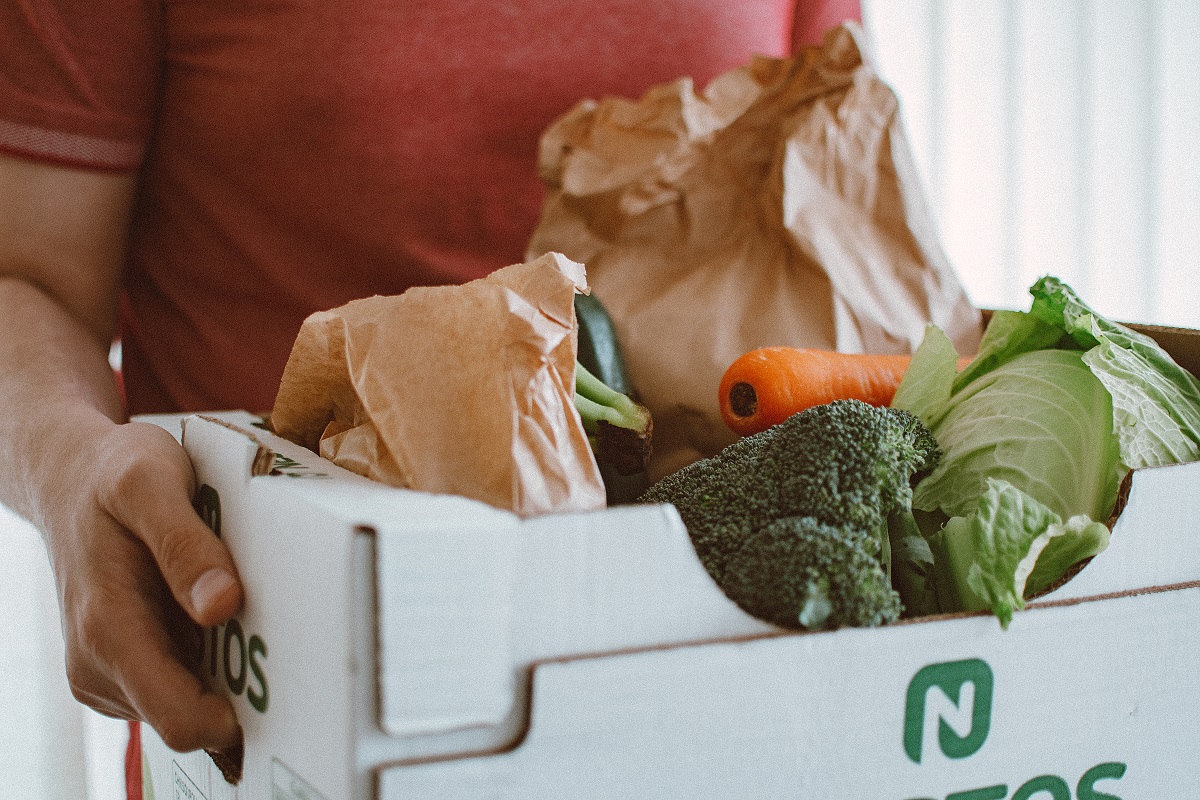
Below is an informal list of free food and meal assistance programs in our community. This list is not exhaustive, and you can request to add or change program information on this list as posted in this e-newsletter on my website by sending an e-mail to nicole.herrera@leg.wa.gov.
For a map with more Seattle area food resources, visit the City of Seattle’s map here.
Rainier Beach Farm Stand
Rainier Beach Community Center, 8825 Rainier Ave S, Seattle, WA 98118
Produce distribution: June 27th through September 26th on Saturdays, 10 a.m. to 2 p.m.
God Is
9254 57th Avenue South, 98118; 206-850-8213
Food distribution: Thursdays and Saturdays, 12 to 2 p.m.
Please bring your own bag.
The following program information was found here and can be confirmed by calling the individual organizations.
Food Lifeline
815 S 96th St, Seattle, WA 98108; 1-877-404-7543 or 206-545-6600
Distribution of emergency food boxes: Click here for dates, times and locations.
Maranatha Church / LifeChange
7132 43rd Ave, Seattle, WA 98118; 256-684-7037
Food Box Distribution: Wednesdays, 10 a.m. to 4 p.m.
Home delivery available.
International Drop-In Center Meal Program
7301 Beacon Ave S, Seattle, WA 98108, 206-414-4263
Home delivery only, call for information.
Rainier Valley Food Bank
4205 Rainier Ave. S, Seattle, WA 98118; 206-723-4105
Food delivery is available regardless of age, health, or income. Sign up for home delivery here.
El Centro de La Raza
2524 16th Ave S, Seattle, WA 98144; 206-973-4401
Food Bank Window Distribution: Thursdays and Fridays, 10 a.m. to 12 p.m. and 2 to 4 p.m.
Food Bank Deliveries (for seniors and mobility-limited individuals): Wednesdays, 2 to 5 p.m.
Senior Nutrition and Wellness Program (ages 55 and up): Monday through Friday 11 a.m. to 1 p.m.
The Food Bank at St. Mary’s
611 20th Ave S, Seattle, WA 98144; 206-324-7100
Food Bank Hours: Monday, Wednesday, Friday, 10 a.m. to 1 p.m.
Seattle Indian Center
1265 Main St Suite 105, Seattle, WA 98144; 206-329-8700
Food Bank Hours: Tuesday and Thursday, 1 to 3 p.m.
Community Meals Program (to go): Monday through Friday, 8:30 to 9:30 a.m. (breakfast) and 12 to 1 p.m. (lunch)
Byrd Barr Place
722 18th Ave, Seattle, WA 98122; 206-812-4994
Food Bank Hours: Tuesdays, 11 a.m. to 4 p.m.; Wednesdays, 12 to 4 p.m.; Thursdays, 9 a.m. to 1 p.m.
YWCA Central Area Food Bank
2820 Cherry St., Seattle, WA 98122; 206-375-1496
Home delivery only, call for more information or visit this website.
Jewish Family Service
1601 16th Ave, Seattle, WA 98122; 206-861-3165
Food Bank Hours: Wednesdays and Fridays, 10 a.m. to 12 p.m. and Thursdays, 2 to 4 p.m.
Community Lunch on Capitol Hill
206-972-2524
Call to confirm location, or visit www.communitylunch.org
Hours for meals to go: Tuesdays and Fridays, 12 to 1 p.m.; Wednesdays and Thursdays, 5 to 6 p.m.
Salvation Army – Capitol Hill
1101 Pike St, Seattle, WA 98101; 206-442-8371
Call for distribution days and times.
ACRS Meal Service
919 S King St, Seattle, WA 98104; 206-774-2420
Home delivery by appointment only.
Lazarus Center
2329 Rainier Ave S, Seattle, WA 98144; 253-335-1930
Distributing meals to go, 24 hours a day.
Emergency Feeding Program
851 Houser Way N, Suite A, Renton, WA 98057; 425-277-0300
Drive-thru and walk-up food distribution: For distribution dates, times and locations, call or visit www.emergencyfeeding.org
Food bag distribution (seniors, disabled community and social services only): Request bag pick-ups at www.emergencyfeeding.org/bagprogram
Salvation Army – Renton
206 S Tobin St, Renton, WA 98057; 425-255-5969
Food Bank: Monday, Tuesday, Thursday, Friday 9 to 11:30 a.m. and 1 to 3 p.m.
Community Supper To-Go: Monday through Thursday, 5:30 – 6 p.m.
My office welcomes your thoughts and concerns, so please feel free to reach out and let us know what issues are important to you and your community.
Sincerely,
Sen. Rebecca Saldaña
Read More





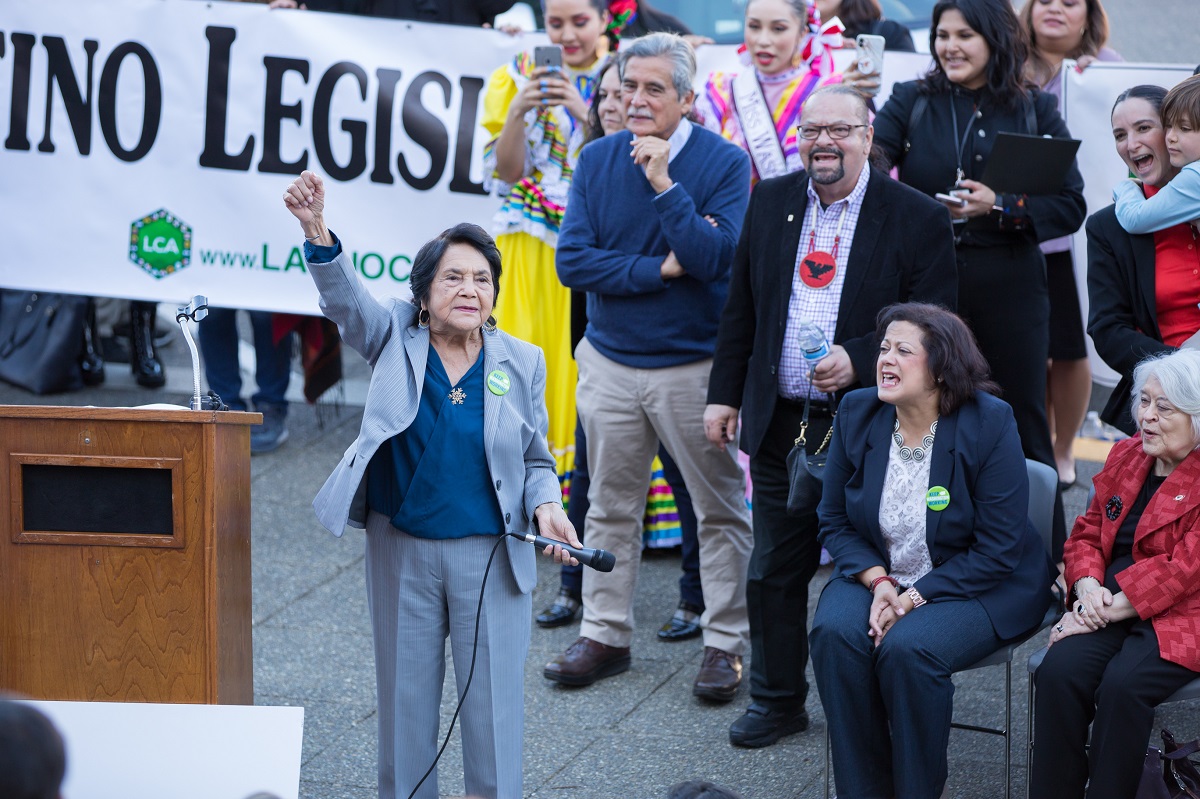


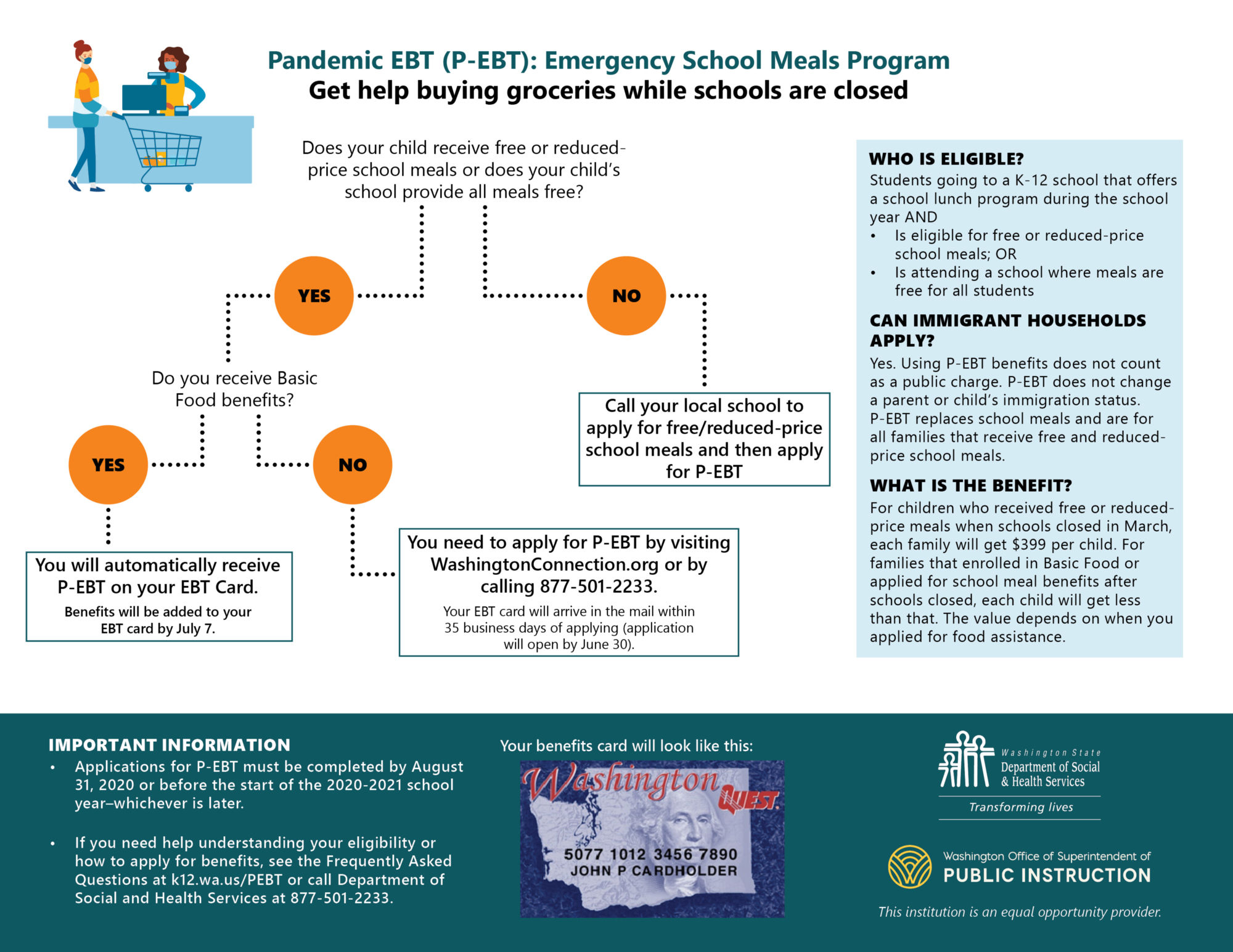
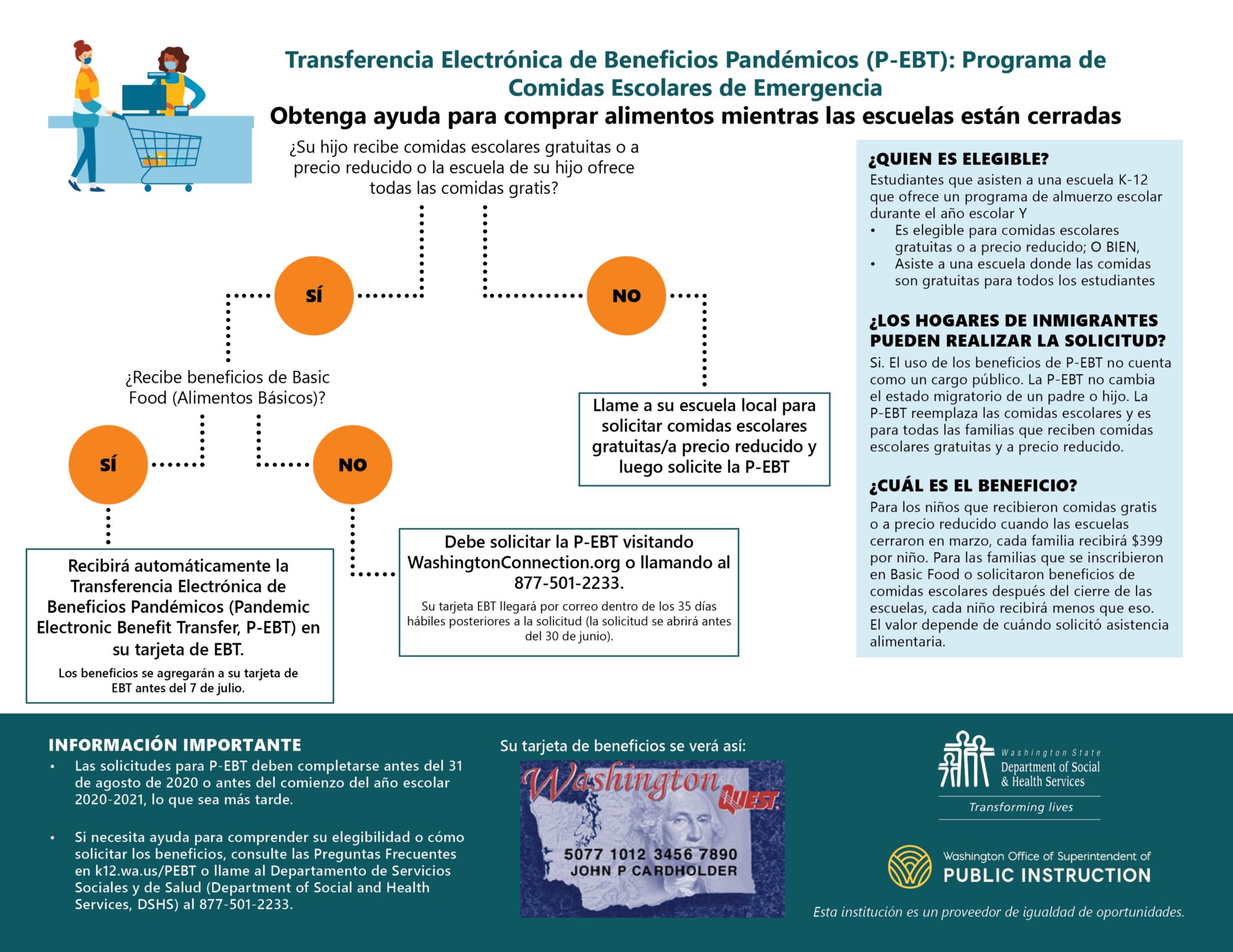
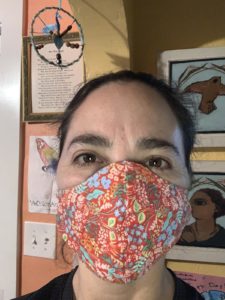
 Economic Services Administration to administer Disaster Cash Assistance Program (DCAP)
Economic Services Administration to administer Disaster Cash Assistance Program (DCAP)

